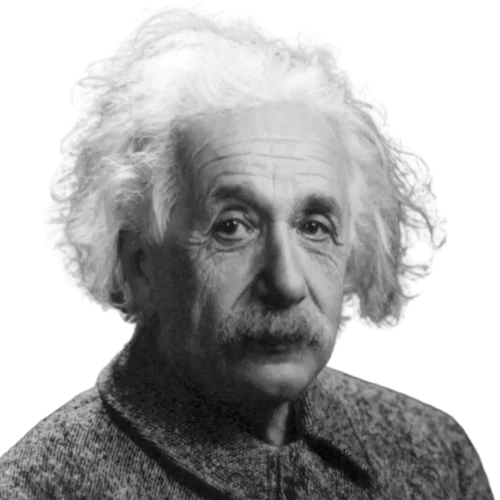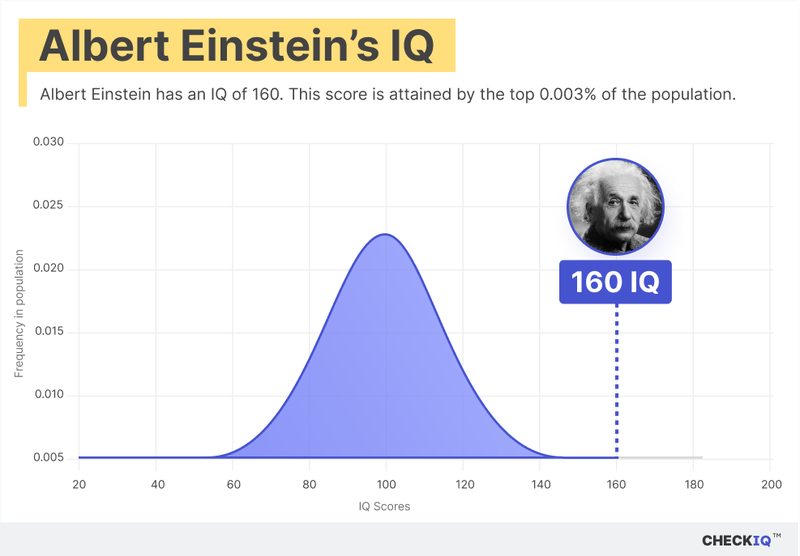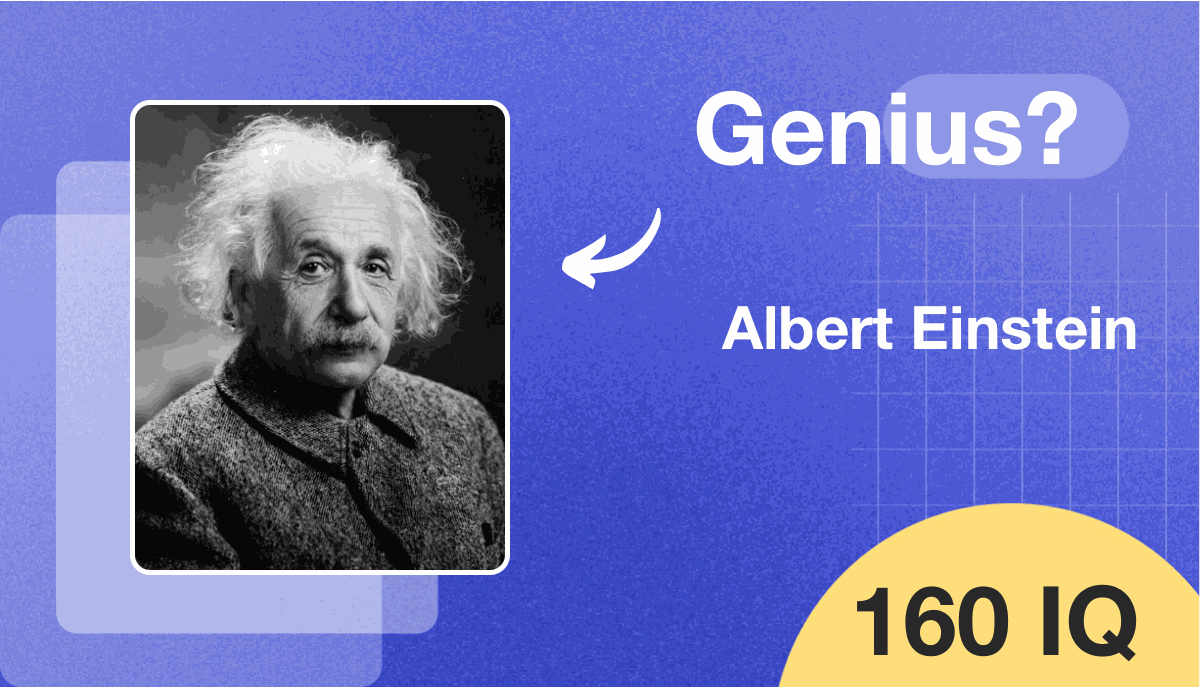Albert Einstein's IQ has long been a topic of fascination and intrigue for scientists, educators, and the general public alike. His contributions to physics and mathematics have left an indelible mark on human history. But what exactly was Einstein's IQ, and how did it influence his groundbreaking theories? This article will delve into the life, intelligence, and legacy of one of the greatest minds in history.
Albert Einstein's IQ is often cited as a benchmark for intellectual brilliance. While the exact number remains debated, his contributions to science, particularly his theory of relativity, have cemented his reputation as a genius. In this article, we will explore the mysteries surrounding his intellectual capacity and how it shaped modern science.
Understanding Einstein's IQ requires more than just a numerical value. It involves examining his life, the challenges he faced, and the revolutionary ideas he introduced. From his early years to his later achievements, this article will provide a comprehensive overview of the man behind the myth.
Read also:Is Jason Kelce A Democrat Or Republican Exploring The Nfl Stars Political Affiliations
Biography of Albert Einstein
Before diving into the specifics of Albert Einstein's IQ, it's essential to understand the man himself. Born on March 14, 1879, in Ulm, Germany, Einstein grew up in a family of modest means. His father, Hermann Einstein, was an engineer and salesman, while his mother, Pauline Koch, was a homemaker. From a young age, Einstein displayed an insatiable curiosity and a knack for problem-solving.
Early Life and Education
Einstein's early years were marked by a fascination with mathematics and physics. At the age of five, he received a compass as a gift, an event that sparked his lifelong interest in the mysteries of the universe. Despite struggling with language as a child, Einstein's intellectual potential soon became evident. He excelled in his studies and eventually enrolled at the Swiss Federal Polytechnic in Zurich, where he earned a teaching diploma in physics and mathematics.
Biodata of Albert Einstein
| Full Name | Albert Einstein |
|---|---|
| Date of Birth | March 14, 1879 |
| Place of Birth | Ulm, Germany |
| Field of Expertise | Physics |
| Major Contributions | General Theory of Relativity, Photoelectric Effect |
Albert Einstein IQ: The Enigma
The topic of Albert Einstein's IQ has fascinated researchers and enthusiasts for decades. While there is no official record of his IQ score, estimates place it between 160 and 190. This range places him among the most intelligent individuals in history. However, IQ alone does not fully capture the depth of Einstein's genius.
What Is IQ?
IQ, or Intelligence Quotient, is a measure of cognitive abilities and problem-solving skills. It is determined through standardized tests that assess various aspects of intelligence, including logical reasoning, spatial awareness, and verbal comprehension. While IQ scores provide a snapshot of intellectual potential, they do not account for creativity, emotional intelligence, or practical skills.
Theories Surrounding Einstein's IQ
Many theories attempt to explain the extraordinary intellectual capacity of Albert Einstein. Some suggest that his unique brain structure, revealed through postmortem examinations, contributed to his exceptional abilities. Others point to his unconventional thinking and willingness to challenge established norms as key factors in his success.
Brain Structure and Intelligence
Studies of Einstein's brain have revealed several anomalies that may have contributed to his genius. For instance, his parietal lobes, which are associated with mathematical and spatial reasoning, were more developed than average. Additionally, his corpus callosum, the bundle of nerves connecting the two hemispheres of the brain, was thicker, potentially enhancing his ability to integrate information.
Read also:Alan And Arlene Alda A Journey Through Their Inspiring Lives
Einstein's Contributions to Science
Albert Einstein's contributions to science extend far beyond his alleged IQ. His groundbreaking theories, including the theory of relativity and the photoelectric effect, have revolutionized our understanding of the universe. These discoveries not only challenged long-held beliefs but also paved the way for future advancements in physics and technology.
Theory of Relativity
- Introduced in 1905, the theory of relativity transformed our understanding of time, space, and gravity.
- It proposed that the laws of physics are the same for all observers, regardless of their relative motion.
- This theory laid the foundation for modern physics and has been confirmed through numerous experiments.
Impact of Einstein's IQ on His Work
While Albert Einstein's IQ undoubtedly played a role in his achievements, it was his relentless curiosity and dedication to discovery that truly set him apart. His ability to think outside the box and approach problems from unconventional angles allowed him to make groundbreaking contributions to science.
Creative Thinking and Innovation
Einstein's approach to problem-solving emphasized creativity and imagination. He believed that "imagination is more important than knowledge," a philosophy that guided his work throughout his career. By combining intellectual rigor with creative thinking, Einstein was able to tackle some of the most complex challenges in science.
Legacy and Influence
Albert Einstein's legacy extends far beyond his scientific discoveries. His name has become synonymous with genius, and his ideas continue to inspire researchers and thinkers around the world. From his advocacy for peace and human rights to his contributions to education, Einstein's impact on society is immeasurable.
Inspiring Future Generations
Einstein's life and work serve as a testament to the power of intellectual curiosity and perseverance. His story encourages individuals to pursue knowledge and challenge the status quo. Through his example, countless scientists, educators, and innovators have been inspired to push the boundaries of human understanding.
Challenges and Controversies
Despite his many achievements, Albert Einstein faced numerous challenges and controversies throughout his life. From his struggles with language as a child to his opposition to nuclear weapons, Einstein's journey was not without its difficulties. However, these challenges only served to strengthen his resolve and deepen his commitment to his work.
Opposition to Nuclear Weapons
Einstein's involvement in the development of the atomic bomb during World War II remains a controversial aspect of his legacy. Although he initially supported the project as a means of countering Nazi aggression, he later became a vocal advocate for nuclear disarmament. His efforts to promote peace and prevent the proliferation of nuclear weapons highlight his commitment to humanity.
Conclusion: The Genius of Albert Einstein
In conclusion, Albert Einstein's IQ represents just one facet of his extraordinary genius. His contributions to science, his creative approach to problem-solving, and his unwavering dedication to discovery have left an indelible mark on human history. By exploring the life and work of this remarkable individual, we gain a deeper understanding of the power of intellectual curiosity and the importance of challenging conventional wisdom.
We invite you to share your thoughts and insights in the comments below. How has Albert Einstein's work influenced your understanding of the world? What lessons can we learn from his life and legacy? Don't forget to explore other articles on our site for more fascinating insights into the world of science and innovation.
Table of Contents
- Biography of Albert Einstein
- Early Life and Education
- Biodata of Albert Einstein
- Albert Einstein IQ: The Enigma
- What Is IQ?
- Theories Surrounding Einstein's IQ
- Brain Structure and Intelligence
- Einstein's Contributions to Science
- Theory of Relativity
- Impact of Einstein's IQ on His Work
- Creative Thinking and Innovation
- Legacy and Influence
- Inspiring Future Generations
- Challenges and Controversies
- Opposition to Nuclear Weapons
- Conclusion: The Genius of Albert Einstein


